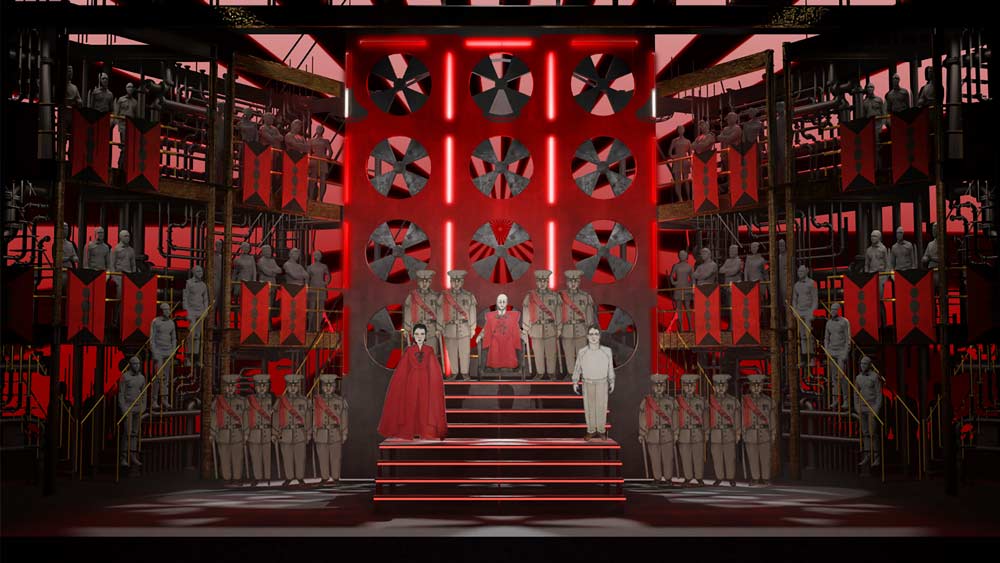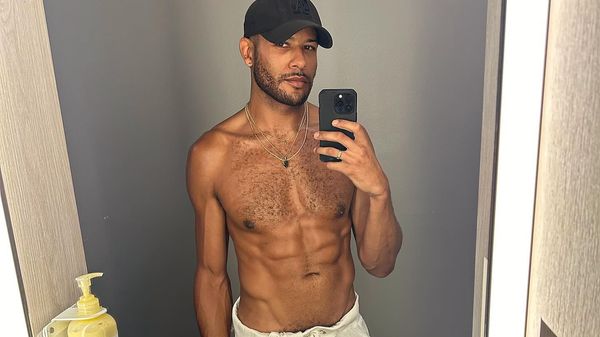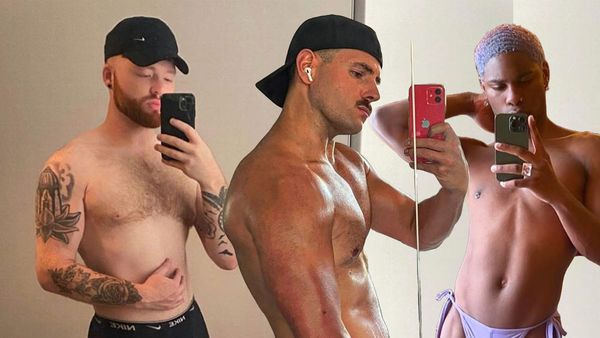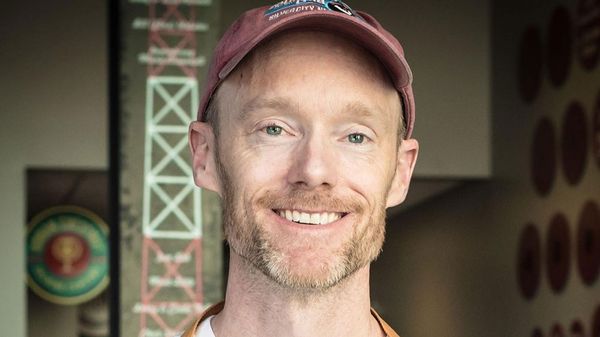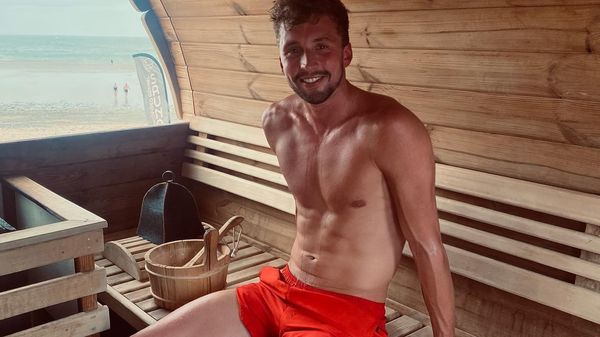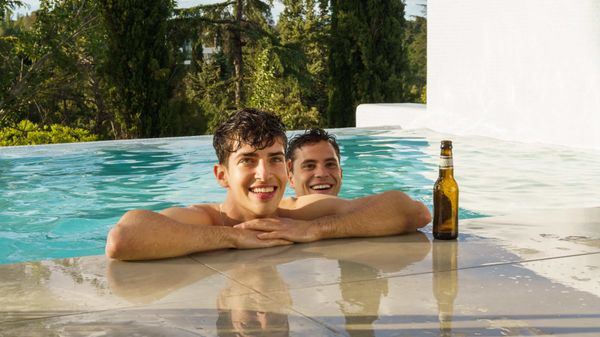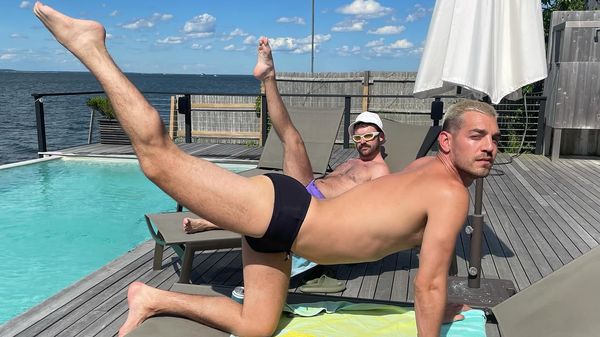May 16
EDGE Interview: How About Some BETTY Pride?
Nicholas Dussault READ TIME: 10 MIN.
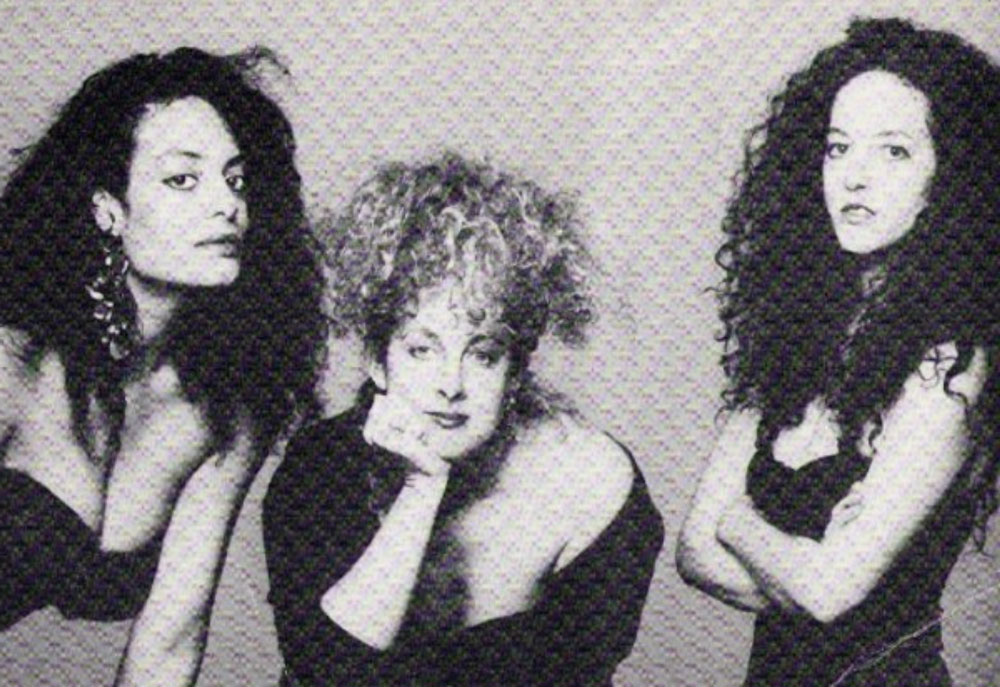
EDGE: How has the music industry changed in 40 years?
Elizabeth: I think that the way that it's changed is that people don't buy music anymore. So that's difficult for people because you still have to pay to record music. And it's just not going to change. That's the way that it's become. Some people do buy music, a lot of our fans do buy our music because they want to support us. And that goes for a lot of other artists, especially in the LGBTQ+ community. People do support you, but it's different in that way, and it's difficult. This record that we're putting out is the first time we've ever done a crowd fund. And it's great because we were able to work with a producer who's an old friend and really turn out a great product that we're all three of us really excited and proud about.
EDGE: Is it easier for women in this industry now than it was 30-40 years ago?
Elizabeth: I think in some ways, it's easier. We started out electronica. We harken back to our roots with this new album, EAT. It's a lot of electronica stuff. I came out and helped the sound people with our sound because a lot of people didn't know how to deal with MIDI and all that stuff in the mid late 80s. All the other sound people were men. I remember one time in Richmond going back and setting up the reverb unit with the guys. In the reverb channel everything was named different parts of a woman's body. And then also having to work with mostly men who weren't used to it. Even though we knew more than they did, we still had to placate them in a lot of ways.
But now there are a lot more sound women, and the men, especially the younger men, are much more able to take orders or to work in tandem with women. I think it's gotten better with the younger generation in a lot of ways. So I think that things have changed within that part of the industry. I'm not sure if it's changed on the top part of the record business. I'm not an expert on that. I just know from being out in the field, that it's changed noticeably with sound people and lighting people.
Aly: Another fun part that we've seen with women and people who identify as women is the expansion of festivals that are for women and women identified people. That's always been fun and always supportive. It's getting richer and richer as we go along. And I love that we can be subsets and substrata together.
EDGE: Do you think it was more fun when being gay was more of a counterculture thing?
Elizabeth: One hundred percent. I liked being an outlaw. And I think our people, especially younger people, they do want to be an outlaw. So they're stretching it further and further and further, putting horns in and things like that. We're seeing that. Also, I think it's great that we've been a part of a community that has fought for the rights that we are now seeing that have happened. Hopefully they won't be taken away.
Amy:I think in our community we have space for lots of different lifestyles. And I think that's something that we've been very, very proactive about. If you want to be married and have a family now, amazing, there's space for it, and there's community. If you don't want to have a family and want to be very adamant about that, there's space for that, too. That's what is so great about the community.
Aly: Another great thing about this is that we've been traveling all over the world doing this for so long. But we still play in places like Salta, Argentina, where, unfortunately, it seems almost criminal at times to be someone in drag or a transgender person. So we can go, we can talk to these people. There are plenty of places in the world where it is underground, where it is dark, and where, like our friends in Uganda, where they will literally take your life rather than let you be who you are.
Amy: Not just in Uganda, but in many, many places.
Elizabeth: In Iran and Iraq and a lot of those Middle Eastern places. And also America, 'Merica. Try talking to a trans person in Texas. It's definitely getting difficult. And I do feel that in the community, too, it's getting a little bit more closed. Hopefully, it won't stay that closed
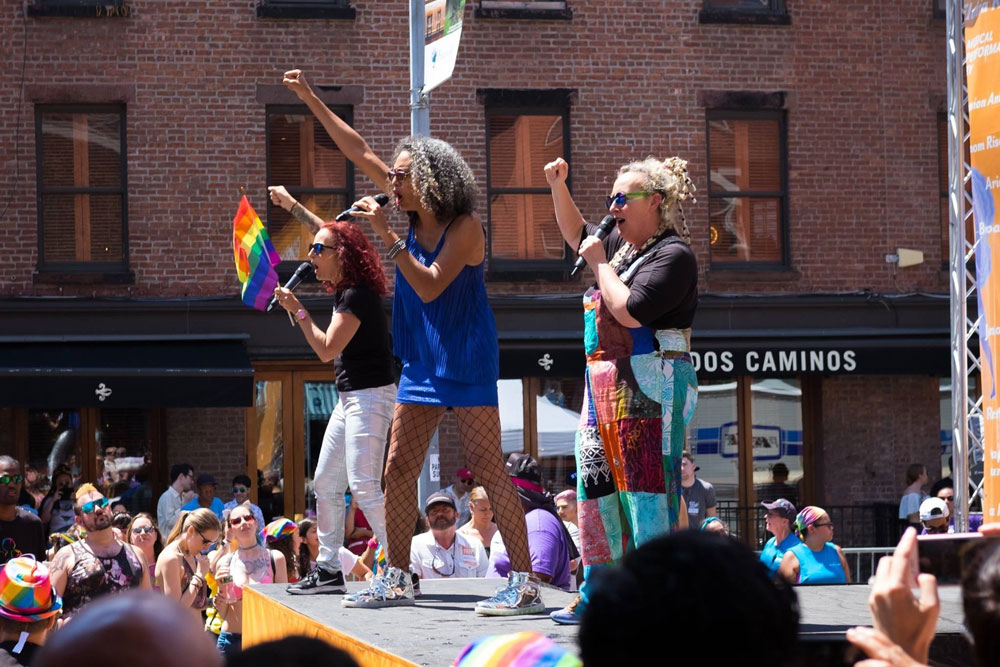
EDGE: You've had a great career...
Aly: It's been really interesting. It's hilly, unlike most people's careers, because we've stayed together this whole length of time. The fact that we're all in this little choo choo train going up and down all these hills. It's just fascinating,
Amy: It's like a caterpillar, definitely. Inch by inch, up and down, up and down.
Elizabeth: In the gay community, more than any other community I think, they embrace authenticity. They're also fab and glamorous. The young people crave it, and they see it in us. We weren't put together by someone else. We write our own music, we sew our own clothes, or we buy our own whatever. The older gays, and the younger gays, all really crave authenticity. I think it actually does spread out into the straight community as well, especially in the younger people. When they see authenticity, they always don't know it because they're inundated with things that are prefabbed and already put together and made and, you know, polished. And then three schmoes and a tuba, we get on stage and people can feel our authenticity because we do make mistakes, and we sing, we laugh at each other, we have fun. I think that people, especially now, crave authenticity. I know I crave it when I go to see something either on the Broadway or in music or whatever it is.
Amy: Authenticity and drama. So the community knows that we're hanging on by a thread.
Aly: We have been for like 37 years.
Amy: Definitely. They're waiting for that final moment where it all either implodes, explodes, or drops dead. For them it's exciting.
EDGE: The theme song from "The L Word," ("The Way That We Live") was a huge hit, but people online said some nasty things about it. How does it feel? Or do you even pay attention to it?
Amy: You know, we went all over the world in concert and people knew that song and sang along with us everywhere we went. In Germany, one of the biggest festivals, people were screaming the lyrics.
Elizabeth: They still do. We have to play it at every show. Otherwise, people get pissed off.
Aly: You know what's funny, the bigger you are, the more people come at you with knives. So it actually was just a testimony to the fact that we'd reach millions, where before we'd only reached hundreds of thousands. So that's exciting.
EDGE: You're Stonewall Ambassadors. What does that mean?
Amy: It means we spread the goodwill of Stonewall and the importance and the history all over the world. And we couldn't be more honored. Really. Absolutely.
Aly: And especially because of the Stonewall Monument National Visitor Center that's opening this year on June 28th. We've been going around the world telling people about this amazing federally supported institution that's coming right here to the West Village.
Elizabeth: It's going to be right next to the Stonewall Inn.
Aly: There's a huge concert like we did last year with Christina Aguilera. This year there's another concert with Adam Lambert, which is going to be really fun. BETTY is going to be performing. We're very, very excited about being Stonewall Ambassadors because what better way to bring the entire world together than in celebration of something so important as rising up for each other's equality and rising up in sparkles and shine. What better.
For more on BETTY, including how to stream their new single and album, and to learn of upcoming dates, visit their website.
